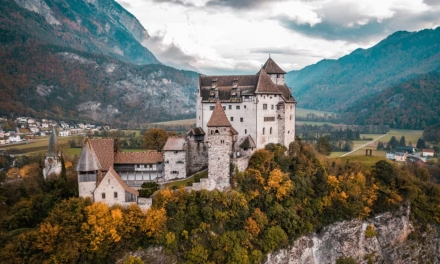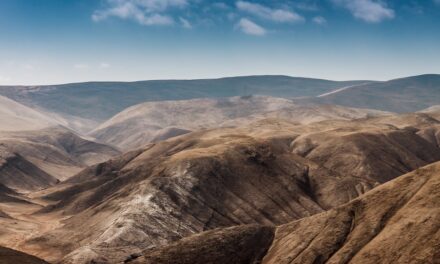Djibouti might not be the first destination that comes to mind when planning an adventure, but this East African gem offers experiences so unique they’ll stay with you forever. From its striking volcanic landscapes to vibrant underwater worlds waiting to be explored, Djibouti is a dream for adventurous travellers looking for something off the beaten path. Curious? Let’s dive into the top 10 unmissable experiences in Djibouti that will make your journey unforgettable.
If you’re planning your next escapade, Nihosi Travels & Tours can help you craft the perfect itinerary, offering expert-guided tours to ensure your Djibouti trip is one for the books.
Tucked away on the Horn of Africa at the intersection of the Red Sea and the Gulf of Aden, Djibouti boasts a stunning blend of natural beauty, cultural diversity, and a rugged charm that few places in the world can rival.
Whether you’re an adventure seeker, a history buff, or simply longing for tranquil beach vibes, you’ll find something captivating in Djibouti. Its diverse ecosystems, unique geological wonders, and welcoming people ensure there’s something for everyone.
Now, let’s explore the magical experiences that make this incredible destination a hidden treasure.
1. Float in Lake Assal – One of the Saltiest Bodies of Water on Earth
Nestled at 155 meters below sea level, Lake Assal holds the title of being one of Earth’s saltiest lakes. Picture this: blindingly white salt flats surrounding turquoise-blue waters, creating an otherworldly landscape that feels equal parts alien and serene.
Similar to the sensation of floating in the Dead Sea, dipping into Lake Assal allows you to effortlessly float on the surface thanks to its high salinity content. Plus, the views of the surrounding dormant volcanoes and rugged terrain are breathtaking.
Insider Tip:
Visit the lake during early morning or late afternoon to enjoy the area without the intense heat. Bonus? Fewer tourists mean better photo opportunities.
2. Snorkel with Whale Sharks in the Bay of Ghoubet
Ever imagined swimming alongside whale sharks, the gentle giants of the ocean? In Djibouti, that dream becomes a reality. From November to February, the Bay of Ghoubet transforms into an unparalleled snorkelling adventure as hordes of whale sharks migrate to these nutrient-rich waters.
Unlike many other places, Djibouti offers an intimate and ethical encounter with these magnificent creatures. It’s the sort of experience that will leave you humbled and in awe of nature’s wonders.
Pro Tip:
Book a reputable tour operator like Nihosi Travels & Tours to ensure a safe and eco-friendly encounter.
3. Wander through the Lunar Landscapes of Lac Abbé
If there’s one place in Djibouti that feels like it’s straight out of a science fiction movie, it’s Lac Abbé. This vast, steamy, surreal plain is dotted with sprawling limestone chimneys that puff out steam from geothermal activities below the surface.
Located on the border with Ethiopia, Lac Abbé offers jaw-dropping sunsets, with shadows dancing across its otherworldly terrain. It’s no wonder parts of the movie Planet of the Apes were filmed here.
Top Tip:
For the best experience, stay overnight at a nearby campsite to catch an epic sunrise that paints the landscape in all shades of pink and orange.
4. Explore the Bustling Markets of Djibouti City
Djibouti City, the nation’s capital, is where you’ll experience the heartbeat of the country. Its vibrant markets, like the Grand Bara Market, are teeming with life, offering a window into the culture, cuisine, and daily lives of locals.
From aromatic spices to handmade crafts and colourful textiles, the market’s labyrinthine alleys are a traveller’s treasure trove. It’s also the perfect opportunity to haggle with vendors and pick up a few unique souvenirs.
Must-Try:
Sample fah-fah (a delicious goat stew) or tuck into freshly grilled fish at one of the market stalls.
5. Witness the Flamingos of Lake Abbe
Lake Abbe is not just about limestone chimneys—this remote desert lake also attracts thousands of flamingos during certain times of the year. Observing these striking birds standing gracefully in the shimmering shallow waters is nothing short of magical.
If you’re a wildlife enthusiast or a photographer, Lake Abbe is a must-visit. Its tranquil and untouched appeal adds to its allure, making every moment off the grid completely worth it.
6. Discover the Alien Beauty of Moucha Island
Fancy pristine beaches and azure waters with no crowds? Moucha Island, located just off the coast of Djibouti City, is a tropical paradise waiting to be explored.
Known for its incredible coral reefs, this island is perfect for diving, snorkelling, or simply lounging in tranquil seclusion. Beneath the water’s surface, you’ll discover a marine ecosystem teeming with life, from playful dolphins to vibrant schools of tropical fish.
Tip:
Bring a picnic! With no commercialisation on the island, it’s the ideal spot for a private day out in nature.
7. Trek the Goda Mountains
Escape to the cool heights of the Goda Mountains for a refreshing change from Djibouti’s arid landscapes. These mountains, situated in Day Forest National Park, are home to lush greenery, unique wildlife, and abundant bird species that thrive in the region’s microclimate.
With temperatures cooler than the surrounding desert, it’s an outdoor lover’s haven for hiking, scenic picnics, and reconnecting with nature.
8. Experience Local Cuisine in Djibouti’s Restaurants
Food is a major component of travel, and Djibouti’s culinary scene does not disappoint. A fusion of Arabic, French, Ethiopian, and Somali influences, the cuisine celebrates bold yet comforting flavours.
Some must-try dishes include:
- Skoudekharis: Spiced rice served with lamb or chicken.
- Sambusas: The local take on samosas, filled with spiced meat or lentils.
- Laxoox: A sourdough flatbread reminiscent of Ethiopian injera, eaten with stews or honey.
For an authentic dining experience, visit local restaurants or street food stalls in Djibouti City.
9. Dive into the Tadjourah Gulf
Nicknamed the “Gulf of Pearls,” the Tadjourah Gulf is an aquatic playground for divers and snorkellers alike. Known for having some of the best-preserved coral reefs in the world, this underwater haven is perfect for beginners and experts alike.
The warm waters are bursting with vibrant corals, reef sharks, sea turtles, and other fascinating marine life. Whether you choose a classic scuba diving expedition or a simple snorkelling adventure, the Tadjourah Gulf delivers.
10. Take a Cultural Tour of Historical Tadjourah
Before Djibouti City became the capital, the town of Tadjourah, located on the northern coast, served as an important trading hub. Today, it’s a charming slice of history filled with whitewashed homes, narrow cobblestone streets, and stunning views of the Gulf.
Take a cultural tour here and visit the local museums and mosques that tell stories of the town’s historic significance along ancient trade routes.
To make the most of your visit:
- Best Time to Visit: The cooler months from November to February are ideal for outdoor activities and whale shark encounters.
- Currency: Bring US dollars or euros, as they are widely accepted, alongside the Djiboutian franc.
- Transportation: Hiring a driver or booking organised tours is usually the best way to explore.
- Health: Bring sunscreen, stay hydrated, and keep up-to-date with vaccines like yellow fever before travelling.
Ready to experience all that Djibouti has to offer? Whether you’re mesmerised by the allure of Lake Assal, eager to explore Moucha Island, or dreaming of swimming with whale sharks, this East African marvel promises adventures that will leave lasting memories.
For tailored itineraries and guided tours, contact Nihosi Travels & Tours at www.nihositravels.com. They offer bespoke travel services to ensure your Djibouti adventure hits every bucket list experience.
Frequently Asked Questions (FAQ)
What is Djibouti known for?
Djibouti is famous for its unique landscapes, including Lake Assal, whale shark sightings, and its rich cultural heritage.
When is the best time to visit Djibouti?
Plan your trip between November and February for milder temperatures and whale shark migrations.
Do I need a visa for Djibouti?
Yes, most travellers require a visa. Check with your local embassy for the most up-to-date requirements.
Is Djibouti safe for tourists?
Djibouti is considered a safe travel destination, but it’s always wise to travel with reputable tour companies and follow local advice.
Explore Djibouti’s diverse offerings and create memories that will last a lifetime. It’s time to say yes to adventure!











Subscribe To Our Newsletter
Join our mailing list to receive the latest news and updates from our team.
You have Successfully Subscribed!